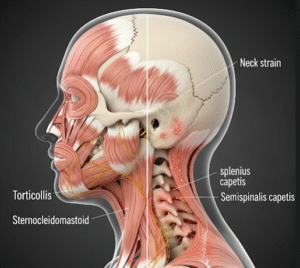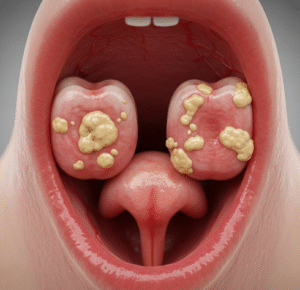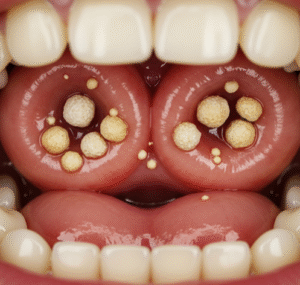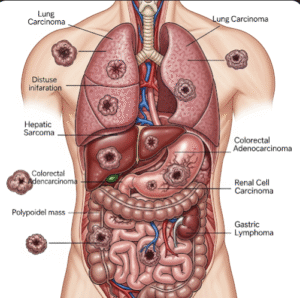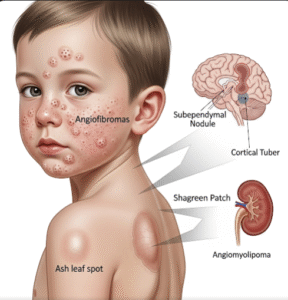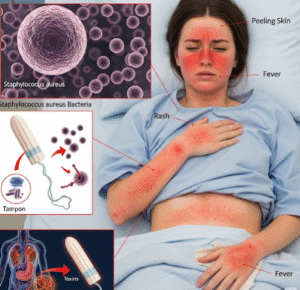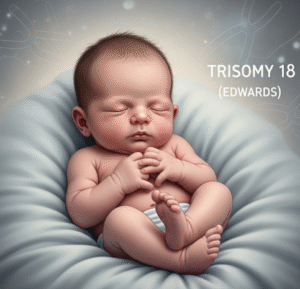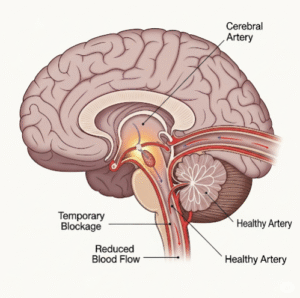Overview
Trisomy 18, also known as Edwards Syndrome, is a severe genetic disorder caused by the presence of an extra copy of chromosome 18. This chromosomal abnormality results in multiple congenital anomalies affecting nearly all organ systems, including the heart, kidneys, and central nervous system. Trisomy 18 is associated with high infant mortality, with many affected infants surviving only weeks or months without specialized care. South Korea provides advanced prenatal screening, neonatal intensive care, and multidisciplinary management to detect, treat, and support infants and families affected by Edwards Syndrome, aiming to improve survival and quality of life.
What is Trisomy 18 (Edwards Syndrome)?
Trisomy 18 occurs when an individual has three copies of chromosome 18 instead of the usual two. This extra genetic material disrupts normal development, leading to severe physical and neurological abnormalities. Trisomy 18 can manifest in different forms:
- Full Trisomy 18: All cells carry an extra chromosome 18, representing the most common and severe form
- Mosaic Trisomy 18: Only some cells contain the extra chromosome, resulting in a milder clinical presentation
- Partial Trisomy 18: Only part of chromosome 18 is duplicated, causing variable symptoms
South Korean medical facilities employ karyotyping, chromosomal microarray analysis, and advanced prenatal imaging to confirm the diagnosis and guide management decisions.
Symptoms
Trisomy 18 presents with severe, multiple congenital abnormalities. Common clinical features include:
- Craniofacial anomalies: Microcephaly (small head), prominent occiput, small jaw (micrognathia), low-set ears, and cleft palate
- Neurological problems: Intellectual disability, structural brain malformations, seizures, and hypotonia
- Cardiac defects: Ventricular septal defect (VSD), atrial septal defect (ASD), and other complex congenital heart malformations
- Renal abnormalities: Horseshoe kidneys, polycystic kidneys, or urinary tract malformations
- Musculoskeletal anomalies: Clenched fists with overlapping fingers, rocker-bottom feet, and limb abnormalities
- Growth retardation: Low birth weight and poor postnatal growth
- Feeding and respiratory difficulties: Problems swallowing, apnea, and increased susceptibility to infections
The severity of symptoms depends on the type of Trisomy 18 and the extent of associated organ malformations.
Causes
Trisomy 18 is caused by chromosomal nondisjunction during the formation of reproductive cells, leading to an extra copy of chromosome 18. Specific causes include:
- Random nondisjunction: Most cases are sporadic, occurring by chance
- Mosaicism: Some cells carry the extra chromosome, causing variable expression of symptoms
- Translocations: Structural rearrangements of chromosome 18, which may be inherited from a parent carrying a balanced translocation
- Maternal age: Increased maternal age is associated with a higher risk of chromosomal abnormalities
Understanding the genetic mechanism allows Korean genetic counselors to provide risk assessment and family guidance.
Risk Factors
Several factors increase the likelihood of Trisomy 18:
- Maternal age over 35 years at conception
- Previous pregnancy affected by a chromosomal abnormality
- Family history of chromosomal translocations
- Genetic predisposition to nondisjunction events
Prenatal screening programs in South Korea are designed to identify pregnancies at high risk for Trisomy 18, allowing early detection and counseling.
Complications
Trisomy 18 is associated with severe health complications that can significantly impact survival and quality of life:
- Congenital heart defects: Leading to heart failure and increased mortality risk
- Neurological impairment: Intellectual disability, seizures, and structural brain malformations
- Respiratory difficulties: Due to hypotonia, malformations, and susceptibility to infections
- Feeding problems: Difficulty swallowing leading to malnutrition and growth delays
- High infant mortality: Many infants do not survive beyond the first year
- Physical disabilities: Musculoskeletal malformations affecting movement and daily functioning
- Infections: Increased risk due to compromised immune and organ function
Early neonatal care and multidisciplinary management in Korea aim to mitigate these complications and enhance infant survival and comfort.
Prevention
While Trisomy 18 cannot be fully prevented, certain measures help with early detection and risk reduction:
- Prenatal screening: Non-invasive prenatal testing (NIPT), first-trimester screening, and detailed ultrasound examinations
- Genetic counseling: For families with a history of translocations or previous affected pregnancies
- Maternal health optimization: Managing chronic conditions, avoiding harmful substances, and maintaining proper nutrition during pregnancy
- Informed reproductive planning: Considering assisted reproductive technologies with preimplantation genetic testing in high-risk families
South Korean healthcare emphasizes early detection and counseling to guide families in decision-making and preparation for medical management.
Treatment Options in Korea
There is no cure for Trisomy 18, and treatment is primarily supportive, focusing on managing symptoms and improving quality of life:
Diagnosis:
- Prenatal genetic testing via amniocentesis or chorionic villus sampling (CVS)
- Postnatal karyotyping and clinical evaluation to confirm diagnosis
- Imaging studies including echocardiography, brain MRI, and renal ultrasound to assess organ involvement
Medical Treatments:
- Symptom management: Addressing feeding difficulties, respiratory support, and seizure control
- Cardiac care: Surgical or medical management for congenital heart defects when feasible
- Multidisciplinary care: Involvement of neonatology, cardiology, neurology, and nutrition specialists
Rehabilitation and Support:
- Palliative care services to ensure comfort and dignity for severely affected infants
- Parental counseling and psychosocial support to manage emotional stress
- Long-term interventions for milder cases, focusing on growth, nutrition, and developmental support
- Coordination with genetic counseling teams for family planning and recurrence risk assessment
Korean hospitals provide advanced neonatal intensive care units, specialized pediatric teams, and comprehensive support systems to manage Trisomy 18, aiming to improve survival, comfort, and family preparedness.



